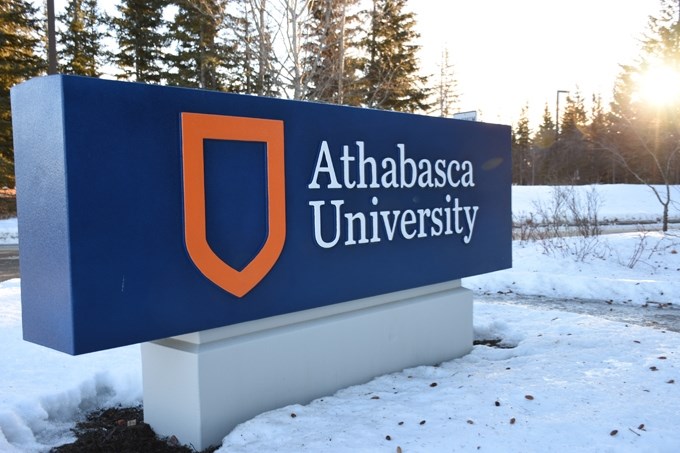A report out of Athabasca University says there are plans to relocate all Information Technology operations to the Edmonton area. The plan came out of a September 2015 report from the Space Strategy Working Group, obtained by the Athabasca Advocate.
A report out of Athabasca University says there are plans to relocate all Information Technology operations to the Edmonton area.
The plan came out of a September 2015 report from the Space Strategy Working Group, obtained by the Athabasca Advocate. The IT department has about 90 positions - 59 in Athabasca.
The document states the department ìplans to gradually shift operational activities from an AU Main Campus Athabasca base to wherever the primary AU consolidated Metro Edmonton location would be selected in the future. î
The report listed a number of challenges recruiting IT to Athabasca, including limited options for other employment, uncompetitive public-sector salaries when compared to contracts, and the lack of IT infrastructure and electrical power in Athabasca.
The document also noted a report from the Presidential Task Force on Sustainability, which raised concerns with respect to prospective employees.
The IT move was not a final recommendation - although the report did recommend consolidating all Edmonton-based locations to create more opportunities for collaboration among staff, visiting professors, students and researchers.
The report also said there was increasing evidence that positions in all faculties and departments were being cut through retirements and resignations, and the replacements would be found in urban areas, even if the position was in Athabasca.
Positions requiring a higher level of specialized knowledge or experience were specifically pointed out - which the working group called ìdifficult to recruit positions. î
However, it said that future hiring of administration and support staff should not be approved unless the position was in Athabasca.
Advanced Ed minister responds
In an interview with the Advocate, Advanced Education Minister Marlin Schmidt said the report was not recommending a move out of Athabasca, but a consolidation of IT offices in the Edmonton metropolitan area.
ìTo me, it looks like they heard that as a suggestion from some of their staff (and) they wanted to incorporate some of the feedback they gathered, but it's not actually what they're recommending Athabasca U do, î Schmidt said.
The report did note that transitioning to a new location would depend on the Government of Alberta.
Schmidt said the government hasn't given specific direction on this issue but he has been in constant contact with university president Peter MacKinnon and the board of governors about the institution's financial situation.
However, when asked if he could guarantee or promise that the university would remain in town, he did not directly answer.
ìIt's a complex situation and we're making sure we're taking the time to understand all of the potential implications of any possible plan that we're going to have, î he said.
ìThe sustainability of Athabasca University and in the community is something that's important to us. It's something that we're working hard (on). Like I said, we're putting the priority on making sure that Athabasca University is sustainable. The problems with Athabasca University have been in development for a long time and I'm keen to resolve the issue, so it's something we're going to be spending a lot of time and attention on. î
The minister said he is scheduled to meet with the president and the board of governors this month.
AUFA responds
A letter from the Athabasca University Faculty Association reads that the plan to relocate staff ìundermines AUFA by diminishing our membership and our ability to represent our members. î
The letter noted that short-term contracts, high turnover and less commitment to the job were important factors in the report's reasoning to relocate IT operations.
As a result, those factors would allow the employer to offload the cost of job training onto the worker, instead of providing benefits like professional development as well as research and study leave, which the union says are the employer's responsibility.
The criticism from the union comes in the midst of contract negotiations between AUFA and the university.
On Feb. 23, AUFA's salary and benefits bargaining team met with the team representing the university's board of governors.
The union proposed salary increases over three years - starting with a 2 per cent increase, then 2.5 per cent, and 3 per cent - in addition to a $500 increase for professional development, a $125 increase to the discretionary benefit fund, and an additional vacation day.
The matter will go to arbitration on Mar. 31 if the two parties have not come to an agreement.
